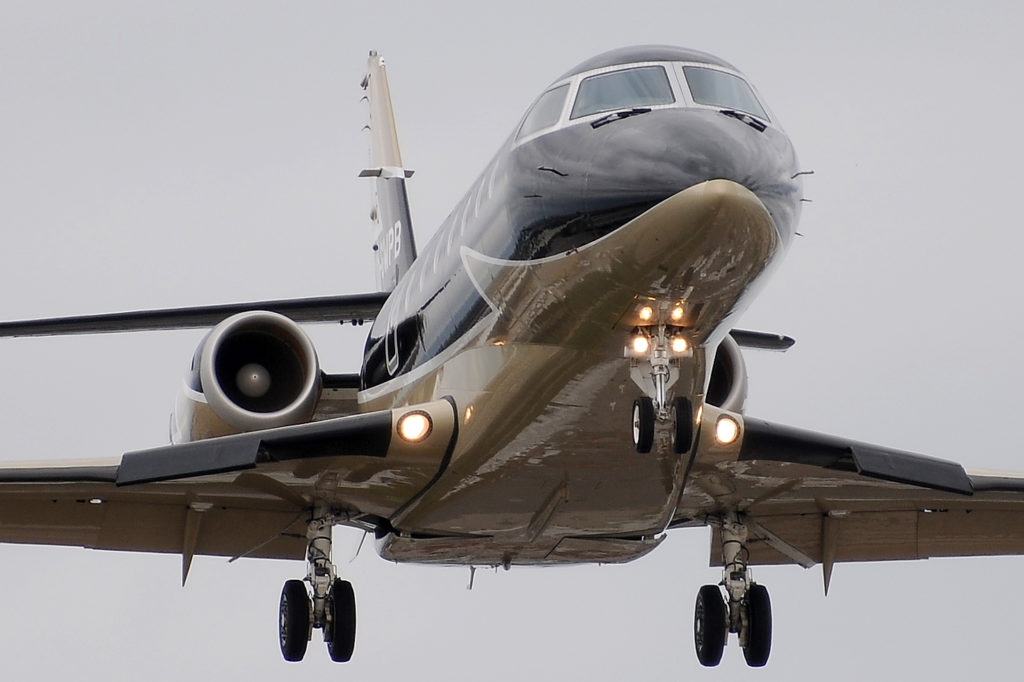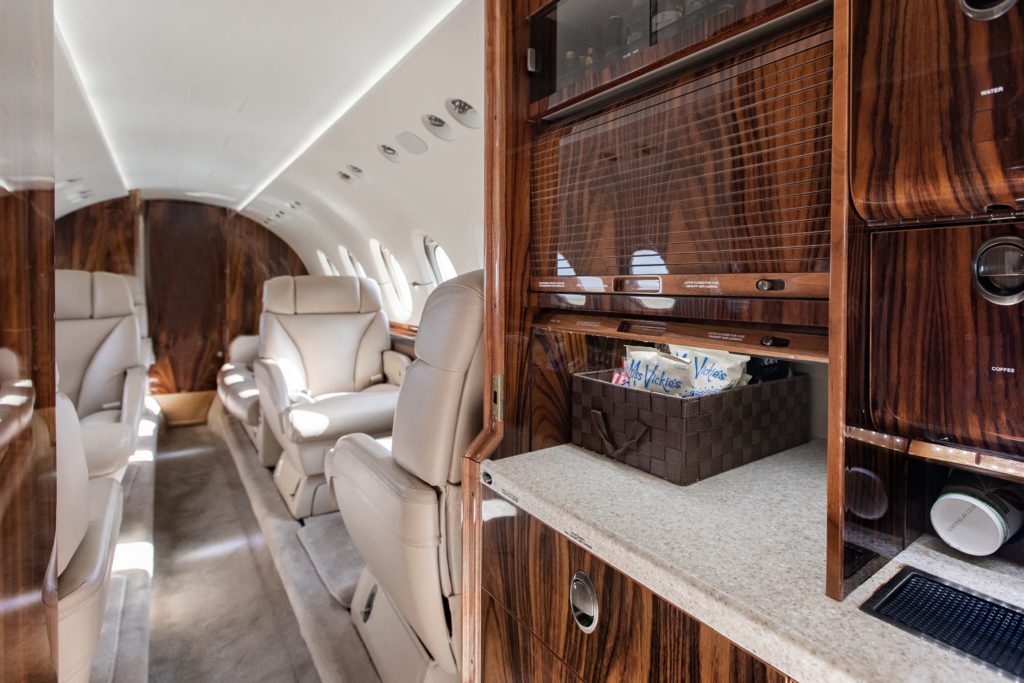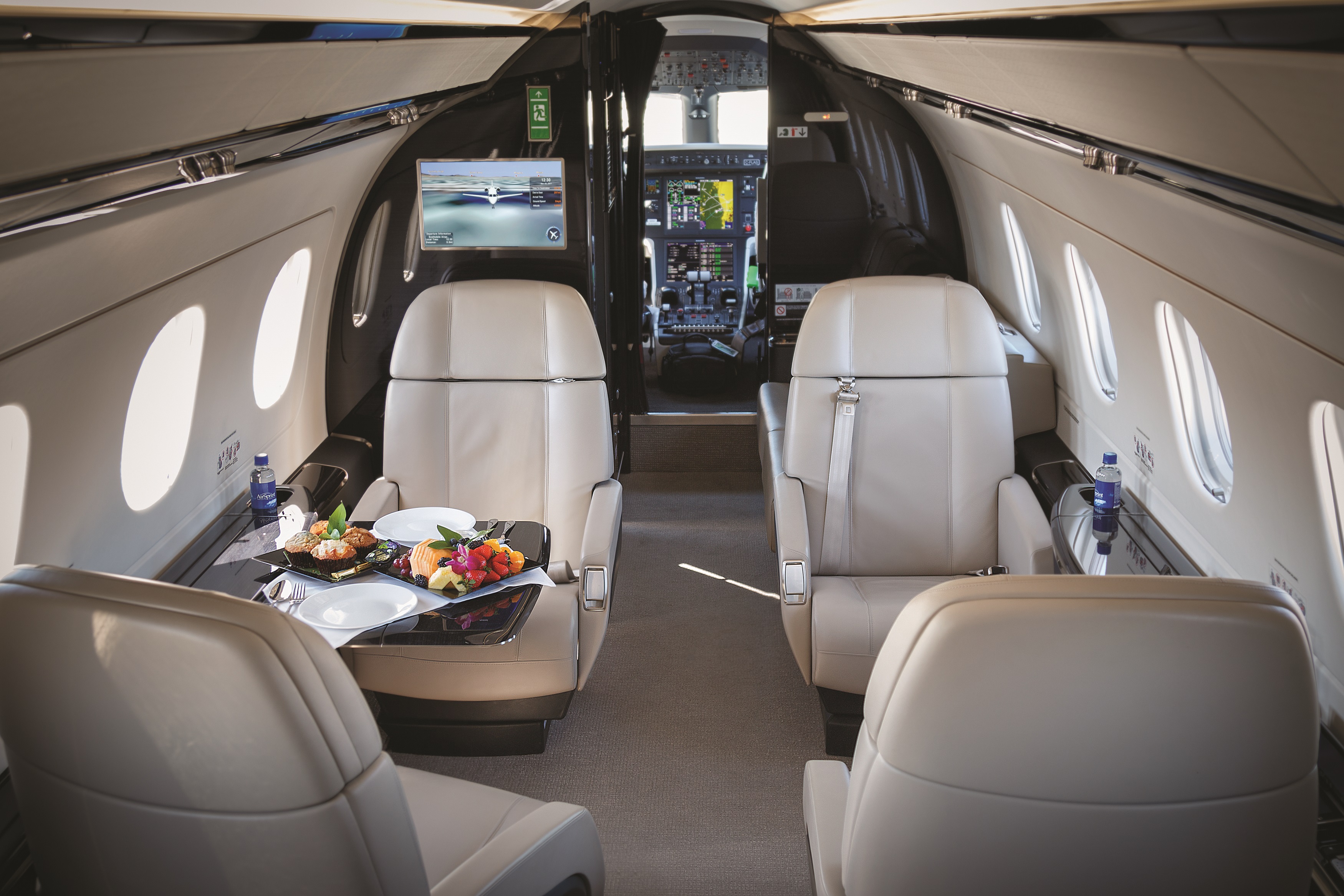Estimated reading time 8 minutes, 4 seconds.
Allegations of price gouging among business jet management companies in the United States and overseas this month have caught the eyes of counterparts here in Canada.

But while media reports allege some jet managers are taking advantage of their millionaire and billionaire clients in a time of unprecedented wealth, Canadian companies are quick to bury the idea this is a systemic problem in the industry.
“I would disagree that clients are being taken advantage of on a daily basis,” said Bill McGoey, president of Edmonton-based Aurora Jet Partners.
“I don’t believe that to be true … private jet owners don’t get to that level without being extremely wise with their money, and with the relationships that they select.”
A Bloomberg article published online in early March alleged that ultra-wealthy jet owners are being radically over-charged for small items, either through clerical errors or by opportunistic managers who figure their clients won’t notice a few thousand dollars missing.
Bloomberg cited the example of a jet owner charged about US$5,300 for 240 sushi boxes “apparently served on board his jet while it was empty.”
It also listed a customer who was charged about US$6,800 for plastic cups during a flight, because a management company “mistakenly added two zeros to the invoice.”
“That would be a huge outlier in the trip invoice,” said McGoey. “I guarantee we wouldn’t miss it. It’s just too big of a number.”
All of the Canadian jet management companies that spoke with Skies on this issue said similar things, noting they wouldn’t be in business long if these kinds of errors happened routinely.
Each company also outlined internal processes for ensuring billing is transparent, invoices are scrutinized, and errors are caught and corrected.
AURORA JET PARTNERS
Aurora Jet Partners charges a flat management fee for its services and passes on additional fees from third-party providers without marking them up, said McGoey.
“Every single line item in our trip invoices is the [actual] cost,” he said.

Jet owners receive an invoice after every trip that outlines, by line item, the costs associated with the trip.
They also receive a monthly statement with a breakdown of charges incurred over a 30-day period, and an annual budget that estimates the cost of running a jet for the year.
“These kinds of measures will flush out any outliers, which we can then question, creating trust with our clients that things are on track,” said McGoey.
Pilots are the first to review individual invoices for additional charges incurred during the trip, such as fuel, catering and other fixed-base operator (FBO) services.
But several Aurora Jet Partners employees scrutinize invoices before they are presented to customers, including an accounting team and company executives.
“In addition to those checks and balances for catching errors or overcharges by a third-party vendor, we also apply standard accounting practices, such as having entries independently verified before they are posted, to protect against mis-keyed entries by our own staff,” said Michael Stimac, the company’s director of business development.
If mistakes happen at any point, they’re corrected with a credit on the jet owner’s account, and if the error indicates a problem with the company’s overall processes, an adjustment takes place to reduce similar errors in the future.
“The process is continually improved,” said McGoey.
AIRSPRINT
Toronto and Calgary-based AirSprint, the largest private jet fractional ownership company in Canada, has a different business model but a similar overall approach.

AirSprint fractional owners pay an annual fee that entitles them to a certain number of hours in the air.
They also pay a flat hourly rate that covers items like in-flight commissary meals and other small charges. AirSprint implemented the flat-rate system in 2010, eliminating detailed bills with multiple line items.
“No matter where you fly in Canada or the U.S., you’re basically paying the same rate, and there’s no surprises,” said James Elian, company president.
“We structured our entire program to maximize the integrity of the program, and to eliminate the chance of any kind of gouging to our clients. With a fixed-rate business model, the risk falls to AirSprint and not our fractional owners.”
AirSprint fractional owners pay additional charges for catering and ground transportation — two areas where Elian acknowledged there is the theoretical potential for price gouging from third-party suppliers, and possible accounting errors.
“It’s not so bad in Canada, but in the U.S., depending on where you go, it can be expensive for the most basic catering,” he said.
“To your point about owners of private jets not scrutinizing invoices, we haven’t seen that,” he added, referencing another claim in the Bloomberg report. “In the past, if we had an expensive catering bill, we likely would get an inquiry about it.”
With this in mind, AirSprint now gathers quotes for catering prior to a flight and gives fractional owners the option of ordering catering at that price.
“If ever we identify an error, at the very least we fix it right away,” said Elian.
“We take it very seriously, and the goal is never to make the same mistake twice. I think we do a pretty good job with that.”
SUNWEST AVIATION
At Sunwest Aviation in Calgary, one of Western Canada’s largest business aircraft operators, detailed billing rules the day and transparency is a key part of the business model.
“It’s an important part of our business–making sure we are collecting and reporting bills accurately,” said Ian Darnley, director of business development.
All charges from third-party suppliers are passed on to the owner at cost, and Sunwest provides monthly statements that are vetted by its accounting team and senior managers before passing them on to customers.
A given flight can produce dozens of invoices for fuel, navigation fees, handling charges, crew expenses and several other routine costs.
As a result, billing is an inherently complex process. Still, mistakes are rare, said Darnley.
As for the idea that jet management companies are gouging clients, Darnley said it would be “ridiculous and extremely short-sighted to do anything like that.
“I don’t think you’ll find that too many management companies would do that,” he added.
“But the reality is, the billing for these airplanes can be very complicated. There’s no easy way around it.”








